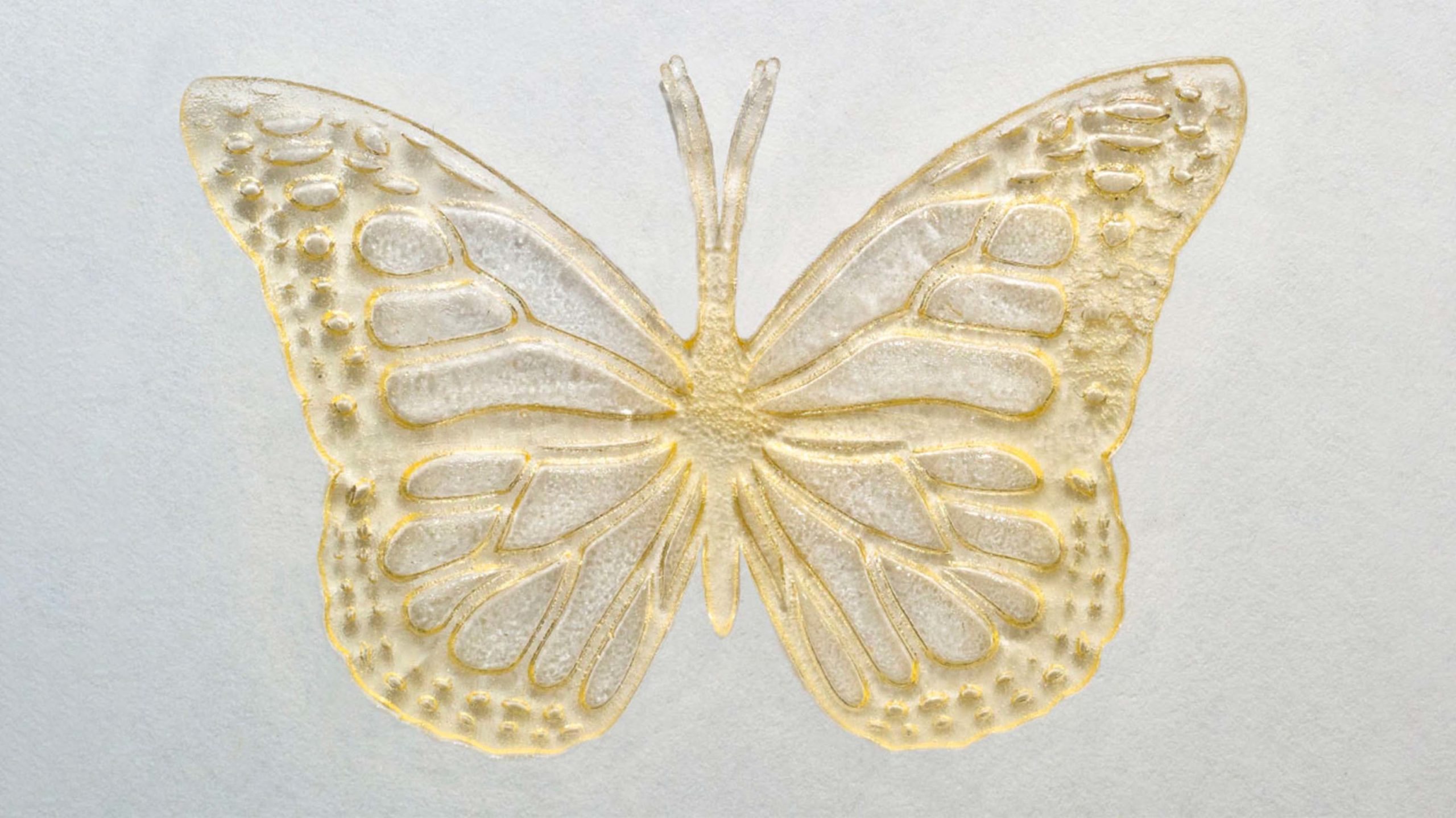UTSC researchers turned used McDonald's cooking oil into 3D printer resin
UTSC researchers turned used McDonald's cooking oil into 3D printer resin
The 3D models printed with the recycled resin are completely biodegradable

University of Toronto Scarborough (UTSC) researchers found a way to plough used cooking oil from McDonald's into a calorie-free-sensitive plastic for 3D printers.
When researchers began dabbling with 3D printers well-nigh three years ago, they noticed the basic molecules used to create plastic resins for 3D printers were similar to the fats used in cooking oil. Later partnering with a local Scarborough McDonald'southward to get their easily on some quondam cooking oil, they were able to run the tests.
Turning the oil into usable resin involves a straightforward chemical process. Once the oil was filtered and cleaned, researchers added a photoinitiator that caused the oil to undergo a meaning shift in its physical properties when exposed to low-cal.
The result: a resin suitable for 3D printers that use stereolithography techniques to build 3D models. Unlike other 3D printers that melt plastic and extrude thousands of thin layers to build up a model, stereolithography starts with a container filled with ever-increasing thing layers of liquid resin. The resin is and so hardened with low-cal until the model is finished.
A local #ScarbTO @McDonaldsCanada gave the researchers the old oil to test information technology out—and it WORKED! 👏🏾 https://t.co/524Vhxx9WV #UTSC #UofT picture show.twitter.com/XRFNSOSLZn
— University of Toronto Scarborough (@UTSC) January 30, 2020
While a litre of onetime cooking oil yielded just 420 millilitres of resin — a little less than half its original book — the cost is also significantly lower. Resins typically used in high-resolution stereolithography printers can cost over $500 USD (nigh $663 CAD) per litre, but this recycled resin could cost as piddling equally $300 (roughly $398 CAD) per metric ton.
Further, the researchers performed a exam that printed a plastic butterfly with details as small-scale as 100 micrometres in size. The model itself was thermally stable, meaning it wouldn't melt or become structurally delicate at or above room temperature.
And if that isn't enough, the 3D printed models fabricated with the recycled oil are completely biodegradable. A sample buried in the basis lost twenty percent of its overall weight after a menses of two weeks.
Ultimately, the idea could provide an first-class mode to reduce or recycle cooking oil waste matter. Considering it can be hard and plush to properly dispose of used cooking oil, finding a new use for it could exist benign. Of class, regulations around cooking oil disposal could also hamper this type of recycling process, not to mention it isn't clear how well information technology would scale upwardly.
Y'all can larn more virtually the research by checking out the publication in the ACS Sustainable Chemical science & Engineering science periodical or by reading the University of Toronto's weblog mail most the experiment.
Epitome credit: Don Campbell
Source: University of Toronto Via: Gizmodo
Source: https://mobilesyrup.com/2020/02/15/university-toronto-researchers-mcdonalds-cooking-oil-3d-printer/
Posted by: brownthabould.blogspot.com


0 Response to "UTSC researchers turned used McDonald's cooking oil into 3D printer resin"
Post a Comment